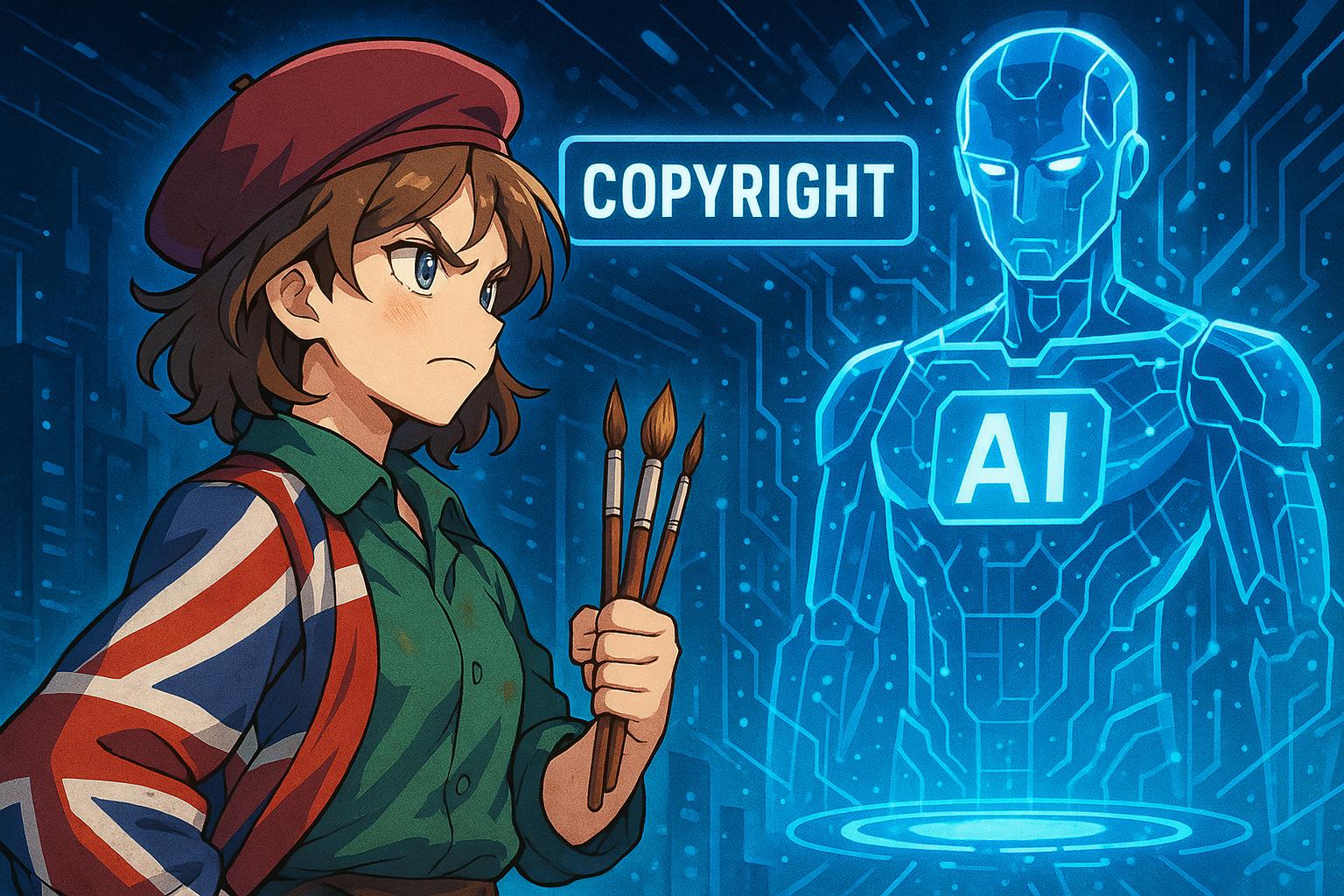The ongoing struggle for copyright protection in the age of artificial intelligence (AI) has come sharply into focus within the UK government, revealing deep divisions between proponents of technological innovation and defenders of creative rights. The House of Lords recently dealt a substantial setback to the government over its Data (Use and Access) Bill, having previously endorsed an amendment that seeks to bolster protections for creators from AI scraping. This reflects a growing sentiment among artists and their advocates that the current legislative framework is inadequate in safeguarding their intellectual property against exploitation by tech giants.
The recent debate was notably charged, with film director and digital rights campaigner, Baroness Kidron, emerging as a vocal critic of the government's stance. She argued that the amendments proposed are essential to preserve the rights of creators and prevent what she termed “theft” of their work. Kidron's view was echoed by several prominent figures in the arts, including Sir Elton John, who labelled ministers as "losers" for proposing structures that would, in their view, legitimise the unauthorized use of artists' content by AI firms. According to Kidron, the expectation that creators would accept such practices in the name of fostering balance and innovation is misguided. "There's no industrial sector in the UK that government policy requires to give its property or labour to another sector—on a compulsory basis, in the name of balance," she asserted, highlighting the imbalance of power between large tech companies and individual creators.
This sentiment parallels recently expressed concerns within other spheres as well. Influential voices like Paul McCartney have also raised alarms over how AI technology could lead to the commodification of artistic works, warning that unless the government implements robust copyright reforms, the rights of creators could be severely compromised. The discourse surrounding AI is further complicated by a report from the House of Commons’ Culture, Media and Sport committee, which explicitly cautioned against allowing AI developers to use existing works without express consent, labelling such policies as a lack of understanding of the needs of creative industries.
The proposed regulations are designed not only to enhance transparency but also to ensure that creators receive fair compensation when their work is utilised for AI training. As Culture Secretary Lucy Frazer noted, there is an ongoing consultation aimed at achieving a balance between fostering the UK's ambitions as a global AI hub while ensuring that the rights of its creative industries are upheld. This legislative initiative is crucial, especially amidst the backdrop of declining royalties and the challenges posed by digital distribution and AI technologies that have reshaped the artistic landscape.
Despite the government’s assertions that it seeks to facilitate innovation without neglecting the needs of creators, critics argue that a significant overhaul of copyright laws is vital. A coalition of creatives, including the British Phonographic Industry and the Independent Society of Musicians, has emerged, firmly asserting that existing copyright protections must remain intact and should not be eroded in favour of technological advancement. Reports indicate that adopting measures allowing AI companies to use copyrighted material without permission could potentially undermine the very foundation of artistic creation in the UK.
As the House of Lords solidified its stance with a decisive vote against the government's position, it showcased an unwavering commitment to protecting the creative sectors. With the Bill now back in the Commons following this significant legislative defeat, the ongoing discourse around AI rights will continue to evolve, necessitating a careful approach that respects both the creative industries' contributions and the technological innovations that can propel them forward. The urgency for action has never been clearer, as influential peers and celebrities alike warn that failure to act will not only jeopardise the livelihoods of artists but could also fundamentally alter the landscape of creativity in the UK.
The debate thus represents a pivotal moment, calling for clearer definitions of ownership and rights in an era dominated by rapid technological advancement—a balancing act that policymakers must navigate with both caution and foresight.
Reference Map
- Paragraph 1: [1], [5]
- Paragraph 2: [1], [7]
- Paragraph 3: [3], [4]
- Paragraph 4: [2]
- Paragraph 5: [4], [6]
- Paragraph 6: [1], [2]
- Paragraph 7: [1], [6]
- Paragraph 8: [1], [5]
Source: Noah Wire Services
